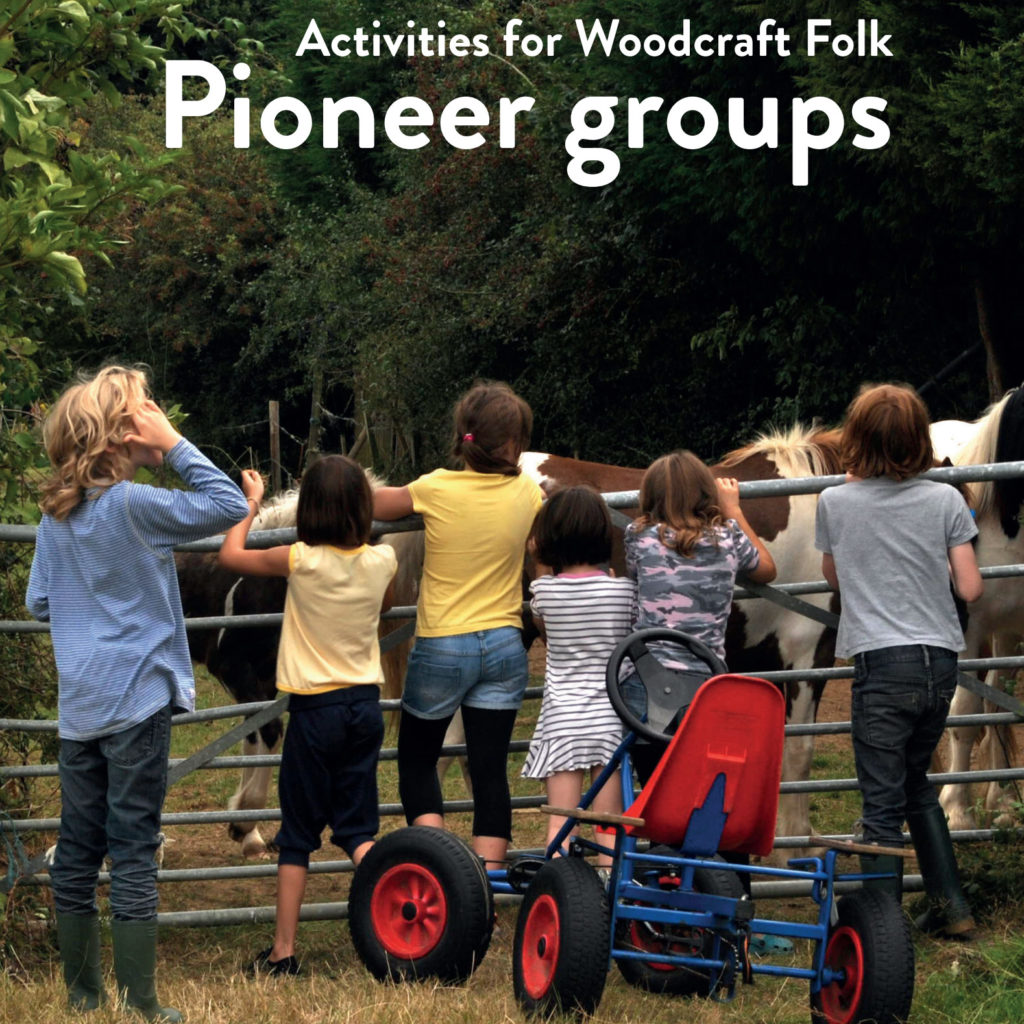Welcome to this resource for Woodcraft Folk Pioneer groups. The aim of this resource is to provide you with a wide range of activities for Pioneers, 10-12 year olds in Woodcraft Folk, on key topics linked to our shared Aims and Principles.
A Pioneer programme should take forward the ideals of Woodcraft Folk, by:
- Exploring how Pioneers can influence society and find ways to cope with increasing peer pressure
- Including lots of physical activity and development through games, hiking, camping and outdoor pursuits to build self-esteem and bonds between the group
- Giving opportunities to develop social skills and friendships
- Playing ‘thinking’ games to raise awareness of issues such as equality, stereotyping and racism
- Offering activities in a non-competitive and co-operative environment
This activity book focusses on activities for your term’s programme. If you’re a new Pioneer leader, or getting more involved in the organisation and development of the group, you should look at the Pioneer Leaders Handbook for more practical advice and information, as well as examples of activities on similar themes to the ones used here.
Most of the sessions in this pack were suggested by Pioneer leaders from across the UK, sharing activities that their groups have enjoyed, and a few have come from other organisations who work with young people on similar topics. The result is a sharing of tried and tested activities to help new and experienced leaders and Pioneers alike.
Pioneers can be a very active age group of young people and they like changing and challenging activities. In this resource, we’ve put together a series of sessions that include some quick games, circle time and a range of different activities to get Pioneer groups thinking about big topics and exploring the themes in the Woodcraft Folk Aims and Principles. You could pick a session from this booklet and simply follow the instructions to run it at a
group night. However, as no two Pioneer groups are the same, flexibility is key, so please feel free to take what you want, adapt as you see fit, and most of all – enjoy it! The most important aspect is that young people are given the opportunity to explore and try out new and more challenging activities. You’ll find some more advice and tips for supporting and facilitating Pioneer activities on page 6 of this book, and practical tools for running sessions
beginning on page 86.
And finally, at the back of this resource is a blank template. This is for you to copy and capture your own successful sessions as we hope that this sharing of ideas between groups will continue. We also welcome your feedback on what’s in here, how it worked with your group, suggestions for tips and variations, and any improvements that could be made.

